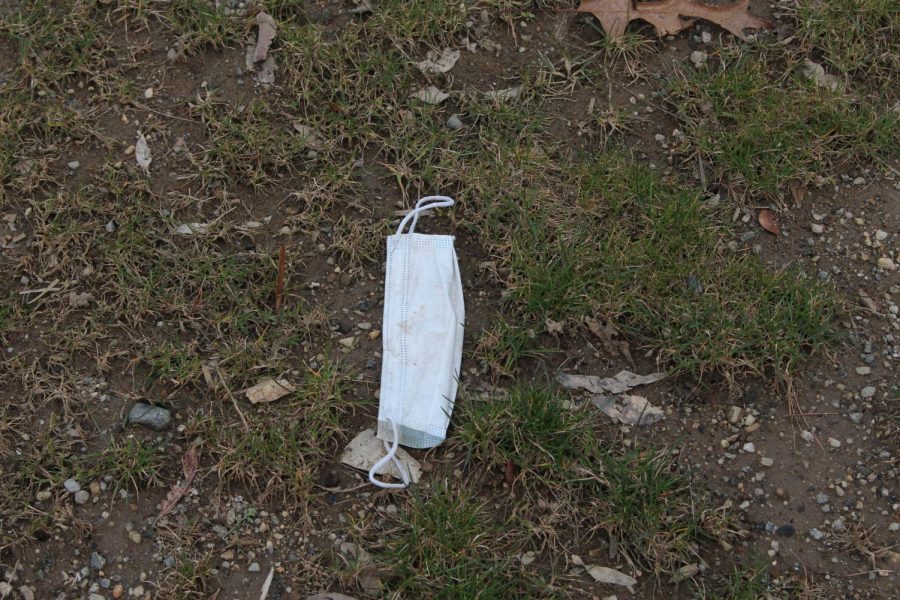A Lot of Masks Means A Lot of Trash
Discarded masks just outside the Ursus news room. They are everywhere.
The pandemic has changed not just the lives of the people, but also the state of our ecosystem. The many disposable masks being thrown away each year has added to factors shattering the fragile balance of nature.
Sahil Vora, a 7th grade student in the purple pod, when asked what he thinks happens to face masks, says that “I think that disposable masks get thrown away and sometimes enter the ocean.” That is true.
According to NBC News, the organization OceansAsia has calculated that 1.5 billion face masks entered the ocean in 2020. OceansAsia also elaborates that the disposable masks the public wears are often made with polypropylene plastic. When this type of plastic breaks down into smaller pieces, it can take up to 450 years to decompose.
“I think disposable facemasks end up going into the garbage,” said Rohan Sareem, a 7th grader. He elaborates that “after that, they end up in landfills.” Rohan is not entirely correct. After going into the trash, wind can blow the masks out and across the ground. Someone might throw their mask away from afar, and it could miss the garbage, landing on the ground. These masks eventually end up in the ocean.
When this happens, face masks cause a massive amount of damage to the ecosystem. For example, the strings that hold the mask to the ears can strangle animals. The plastic front of the mask can split into many different microplastics. These microplastics will be eaten by fish, and do you know who eats those fish? Us. Also, microplastics can be small enough to fit through filters and end up in our drinking water.
If you want to throw out an old mask, put it into the garbage, or it could end up being in someone’s meal. Gross. All in all, it is best to avoid disposable plastic masks, and only use reusable ones.



